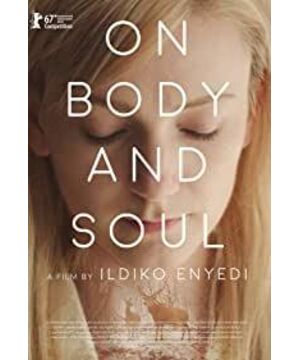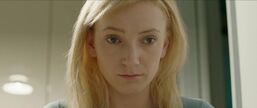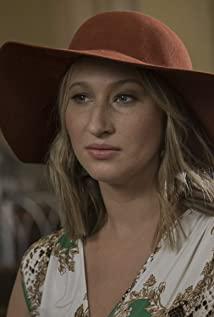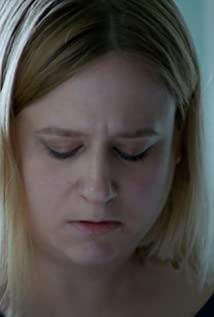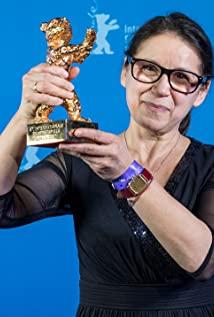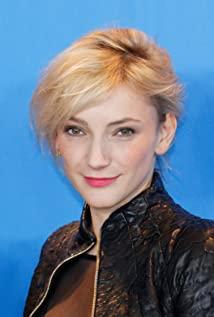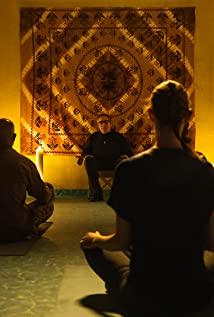On Body and Soul finds love in a bloody place
In Ildikó Enyedi's funny and sensitive romance, a shy veterinarian and a frustrated middle-aged male, two lonely souls work the same bloody slaughterhouse , sharing a poetic dream
————————
Philip Kemp
2017 09 27
From the October 2017 issue of Sight & Sound
————————
Production: Hungary, Germany 2017
Duration: 115 minutes and 41 seconds
Director: Ildikó Enyedi
Starring: Maria Mária -- Alexandra Borbély
Endre - Géza Morcsányi
Format: 2.35:1
————————
It's clear that the parallel lives that happened at the same time always attracted Hungarian director Ildikó Enyedi. In her 1989 debut feature film, My Twentieth Century (1989), twin sisters were born in Budapest on the same day Edison first showed the electric light They were separated at an early age; one grew up to be a cunning femme fatale, the other an aspiring revolutionary, and their lives were constantly intertwined and reflected in each other in contradictory ways. Ildiko's second feature film, Magic Hunter (1994), tells several stories intertwined in modern Hungary and the Middle Ages. Her latest feature film, On Body and Soul (2017), which won the Golden Bear at the Berlin Film Festival, depicts two lonely and estranged souls who find each other and they share a dream.
But the movie doesn't start with them. Or to put it another way, it really started with the two of them. In a snow-covered forest, a pair of male and female deer roam around in search of food, occasionally touching each other lightly with their noses. The intimate scenes of the two animals are constantly interspersed throughout the film, as opposed to the brutal and bloody slaughter of the slaughterhouse. Only after a while will we learn from the film (although we might have guessed) that the two deer are the spiritual characters, or incarnations, of the two protagonists – Maria and Endre – who exist in A dream shared by the two of them.
It was through the psychiatrist that the two discovered this dream connection between them and brought them together—a turning point in the plot that, if not dealt with properly, would have been disgustingly contrived. However, in Ildiko's shot, the director combines this with the two men's indecisive and unknown relationship, showing it in a calm and silent way, usually through the window watching the two at night in their respective apartments , as in Edward Hope's paintings.
The development of the two protagonists' stumbling relationship due to their respective shyness is reminiscent of the director's earlier work, Tamas and Juli (1997), itself derived from a type of so-called "lonely folks" ("lonely folks"). ”), such as Delbert Mann’s classic “A Gentleman” (Marty, 1954), written by Paddy Chayefsky. As director Ildeco's first feature film in 18 years, the pair of strange souls in the film are Endre, played by Géza Morcsányi, a large industrialist The treasurer of the slaughterhouse, and Mária, played by Alexandra Borbély, a new quality inspector.
Ndre is a middle-aged man who has lost consciousness in his left hand, but the movie never explains why his left hand became this way. Endre lives alone, eating alone in a restaurant or in an apartment alone. His only friend is a fat, wife-controlled HR executive named Jenö (played by Zoltán Schneider). They often eat together in the cafeteria.
Maria is a delicate blond girl in her early twenties. Apparently she has few friends: she lives to the point of being autistic, lacks all social skills, rejects all friendly conversations, and hates physical contact with others. At the same time she can remember everything. When she was asked by a psychiatrist when she had her first period, she answered without hesitation: "November 5, 1998."
The director doesn't forget to make little jokes when she builds the empathy between the two characters, and these jokes are usually revealed by some meaningful close-ups. For example, when the camera is on Maria's dinner plate, we can see that half of the plate is a perfect semicircle of rice, and the other half is four fish sticks arranged in a perfectly symmetrical fan shape. Most of the laughs have to do with the film's characteristic supporting characters. For example, a psychiatrist named Klára, played by Réka Tenki, whose direct character attitude contrasts sharply with Maria's silence. And her full red lips and plump breasts, which made Indre stare, and Clara grabbed her. Then there's Pál Mácsai's unruly cop, who always laughs about the theft of powder used for cow mating, making guests "like mad animals to each other at a 50th-grade reunion." Jump on the opponent." And, of course, the elderly cleaner, played by Itala Békés.
Of course, the whole movie is still driven by the two leading actors. Mosanyi, although only in his 60s, brought a pathetic melancholy to his character, and his own long face and beard suggest that his character has experienced repercussions The pain of his life, a disillusionment. However, Maria, played by Bolbey, is the character who develops the most with the story. As she tries to teach herself some of the most basic social skills, such as emotional externalization and physical contact, we can see her go to bed with a stuffed black panther doll, to pet a slaughterhouse cow (which is something other slaughterhouse employees do) It's more like watching the fun), put your hands in a plate of mashed potatoes, watch porn, or rehearse conversations with Lego figures.
Perhaps one of the film's most captivating moments is when Maria wanders the park, staring intently at a loving couple lying on the grass, before she lays down on the lawn herself, when the sprinklers on the grass Start spraying. Maria was drenched like she'd taken a shower, but she had a curious, happy smile on her face. This scene, like the whole movie, is concise, charming, and poetic.
————————
Original: https://www2.bfi.org.uk/news-opinion/sight-sound-magazine/reviews-recommendations/body-soul-ildiko-enyedi-love-bloody-place
View more about On Body and Soul reviews


